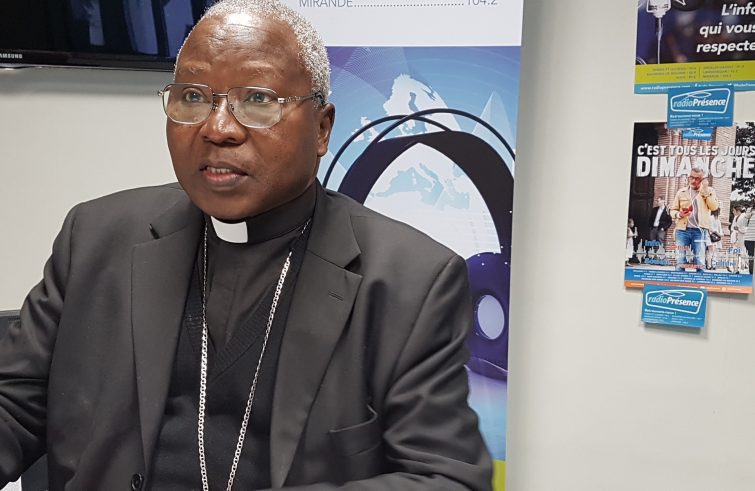
Father Antonio César Fernández, a Salesian missionary, was killed on 15 February 2019 by a terrorist commando. He was shot three times while returning to his community, in Ouagadougou, in the capital of Burkina Faso. Father Joël Yougbaré, belonging to the Society for African Missions, was abducted in the administrative province of Soum, in the north of the country, a month later. The priest had travelled to the village of Bottogui to celebrate Holy Mass. There is no news of him since then. Abbé Siméon Yampa, 34 along with five faithful, were killed on May 12, 2019. Father Yampa was killed while celebrating Mass in Bablo, also in the north of the country, by a group of jihadists. Card. Philippe Ouédraogo, Archbishop of Ouagadougou, President of the Symposium of the Episcopal Conferences of Africa and Madagascar, remembers the names of all the priests assassinated in Burkina Faso by terrorists, responsible for “over 800 deaths, and for 600,000 refugees since 2015,” he told SIR. Just a few days ago 36 people were killed in a street market during an attack, thirty more died yesterday in the province of Soum
“In order to deal with this violence, all of us leaders of the various faiths have embarked on a path of inter-religious dialogue. But this phenomenon of hate isn’t only religiously-motivated.”
The common denominator of the attacks is the origin of the terrorists who claim to be Islamic: they raided the northern regions of the country, Sahel first and foremost, from Mali or Niger.
Why are these attacks occurring?
It’s hard to say. There are political, economic aspects involved, as well as enemies coming from abroad to impose their reasons. Who are the perpetrators of these attacks? Are there ties with others living outside Burkina Faso, in Mali, in Niger? Where do the weapons come from? There are no arms factories here.
Who are the terrorists targeting?
Not only Christians. Catholics were killed during Sunday Mass, Protestants were also victims of terrorist attacks. A pastor of our Protestant brothers was killed in another similar attack. So were Muslims, which is strange. In one village, 18 Muslims were killed during their Friday prayers.
Religious communities are the main targets of terrorist violence.
How is the Pope following this situation?
On two or three occasions, during the Wednesday audience and the Angelus prayer, Pope Francis asked to pray for Burkina Faso that is living in a state of suffering as a result of these tragedies caused by terrorist violence.
A few months ago we wrote to the Pope and he responded with a gesture of solidarity. He made a donation to our suffering population. The Holy Father’s solidarity should be expressed by all the people of God and States.
What form of assistance are you receiving?
Caritas in different countries are helping us. We are in need of aid both at regional and international level. For us believers, peace is a gift from God. And it’s also the result of human action. We must pray.
In my diocese we have decided to organize a year-round prayer chain.
We started the first week of Advent and will continue until the Solemnity of Christ the King. I call upon everyone to help us with their prayers. Because peace is a gift from God. It is also a human event. Charitable organisations in Europe and Africa have been offering their support, notably the families of the victims of terrorist attacks.
Why is solidarity still needed?
The extent of the violence and of the attacks led to the emigration of many people. In some cases villages have been destroyed, in others farmland is no longer suitable for cultivation during the rainy season. Many people need help. Over two thousand primary and secondary schools have been shut down.
Women and children are the first victims of these attacks.

We have planned a day to raise public awareness in order to help the victims of these terrorist attacks. The whole world is a global village. The suffering of some should be felt by all. We also need the solidarity of peoples to ensure lasting peace in our Country.
What other initiatives have you taken against these attacks?
Fifteen days ago we, Mogho Naba (the moral authority of the country, Ed.’s note.) met with the leaders of the various religious denominations – leaders of the traditional religion, Muslims, Protestants and Catholics – in the capital city on the occasion of the exchange of greetings for the New Year. On that occasion we brought a joint message of unity to encourage everyone to confront this dramatic situation together. Ours is a tolerant society with different faiths that coexist and live together peacefully, regardless of differences of opinion. But now we have experienced the attacks of the forces of evil.
As religious leaders we work together to guide the population on the path of tolerance and forgiveness. In order to rediscover a life of peace, our pastoral path is based on inter-religious dialogue.












